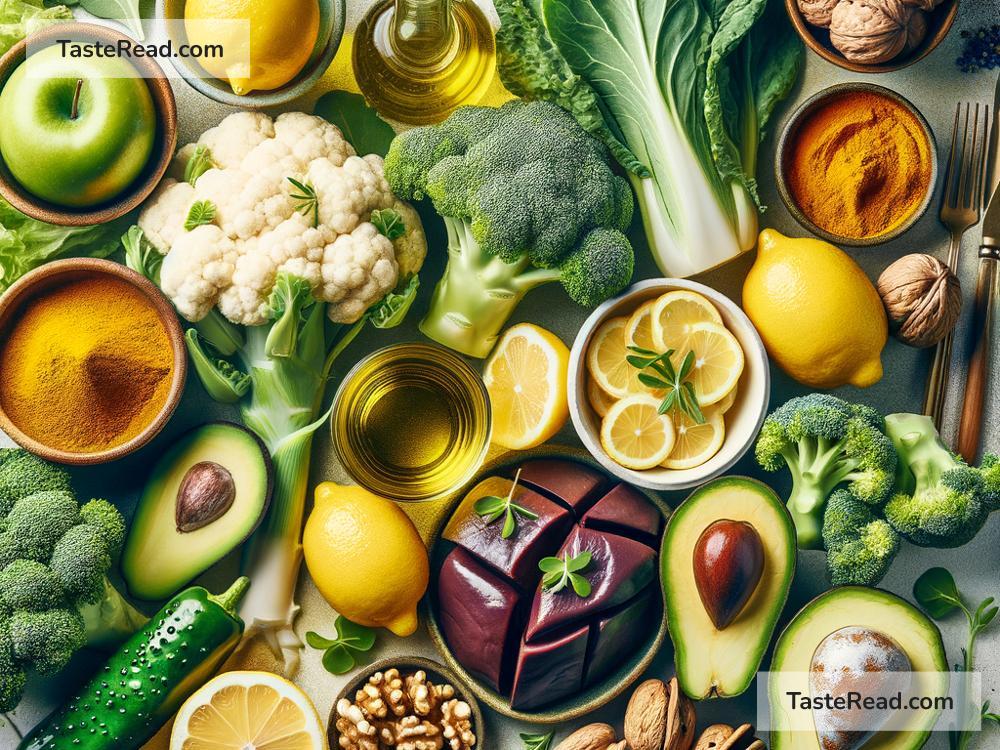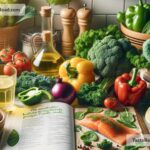The Role of Nutrition in Supporting Liver Health
The liver is one of the most important organs in the body. It’s like your body’s superhero—it has the tough job of filtering out toxins, processing nutrients, and helping with digestion. When your liver is healthy, it works hard to keep your entire body running smoothly. But if your liver becomes damaged or unhealthy, it can lead to serious health problems. So, taking care of your liver is crucial, and one of the best ways to do that is through proper nutrition. Let’s dive into how food plays a vital role in supporting liver health and talk about simple dietary habits that can make a big difference.
What Does the Liver Do?
Before we explore the role of nutrition, it’s important to understand what the liver does. The liver is located in your upper abdomen, and it’s the largest internal organ in your body. Its main functions include:
– Detoxification: The liver cleans out harmful substances like alcohol, drugs, and toxins from your bloodstream.
– Digestive support: It produces bile, which helps break down fats in the foods you eat.
– Nutrient processing: The liver takes vitamins and minerals from your diet and uses them to keep your body healthy.
– Storage: It stores energy in the form of glycogen and keeps certain vitamins and minerals, like iron, ready for when your body needs them.
Because the liver works so hard, it’s essential to fuel it with the right foods to support its functions.
How Nutrition Affects Liver Health
The liver is highly affected by what you eat and drink. Some foods promote liver health, while others can damage it over time. A poor diet—high in unhealthy fats, processed sugars, or alcohol—can lead to liver inflammation, fat buildup, and even diseases like fatty liver disease or liver cirrhosis. On the other hand, a balanced diet can protect your liver, boost its performance, and even help it heal if it’s damaged.
Foods That Support Liver Health
If you want to keep your liver happy, focus on eating nutrient-rich foods that are natural and healthy. Here are some liver-friendly foods:
-
Fruits and Vegetables:
Fruits and veggies are full of antioxidants, which help protect your liver from damage. Leafy greens like spinach and kale are especially good because they help increase bile production and reduce the risk of fatty liver. Other great options include broccoli, cauliflower, carrots, and sweet potatoes. Citrus fruits like oranges and lemons contain vitamin C, which helps the liver flush out toxins. -
Whole Grains:
Whole grains like oats, brown rice, quinoa, and whole wheat bread are high in fiber, which supports digestion and helps the liver process nutrients more efficiently. Fiber also reduces inflammation that could harm liver function. -
Healthy Fats:
Not all fats are bad for your liver! Healthy fats from foods like avocados, nuts, seeds, and olive oil can reduce inflammation and prevent fatty liver disease. Omega-3 fatty acids, found in fish like salmon and mackerel, are especially beneficial for liver health. -
Clean Proteins:
Lean protein sources like chicken, turkey, eggs, tofu, and legumes provide essential amino acids that support liver function. If you enjoy red meat, eat it in moderation, as too much saturated fat can stress the liver. -
Tea and Coffee:
Studies suggest that drinking coffee or green tea in moderation can be good for your liver. Coffee may help reduce inflammation, while green tea contains antioxidants that can lower fat buildup in the liver.
Foods to Avoid or Limit
Some foods and drinks can make the liver work harder or even harm it directly. Limiting these items can go a long way in protecting your liver:
– Alcohol: Drinking too much alcohol is one of the leading causes of liver damage. If you drink, try to stay within recommended limits.
– Sugary Drinks and Snacks: Foods high in refined sugar (like candy, cookies, and soda) can cause fat to accumulate in the liver over time.
– Fried and Processed Foods: These are often packed with unhealthy fats that can lead to inflammation and fatty liver disease.
– Excess Salt: Too much salt can cause water retention and strain the liver. Try cutting back on salty snacks and processed foods.
Hydration and Liver Health
Staying hydrated is just as important as eating the right foods. The liver needs water to flush out toxins and keep working efficiently. Drinking plenty of water every day keeps your liver in good shape. Herbal teas are also a great option for hydration.
Lifestyle Habits and Nutrition Go Hand-in-Hand
Eating a healthy diet is a big step toward supporting your liver, but there are other habits that can help too:
– Exercise: Regular physical activity helps maintain a healthy weight, which reduces stress on the liver.
– Avoid Smoking: Smoking introduces harmful toxins into the body that the liver has to work hard to remove.
– Limit Medications: Certain medications can strain the liver. Only take medicine as prescribed by your doctor.
Conclusion
Your liver works tirelessly to keep your body healthy, and the food you eat plays a critical role in keeping it strong and functioning properly. By eating a balanced diet full of fruits, vegetables, whole grains, and lean proteins—and avoiding harmful substances like alcohol and sugary foods—you can protect your liver now and in the future. Combine good nutrition with healthy habits like exercise and hydration to give your liver the care it deserves. After all, a happy liver means a happier, healthier you!


